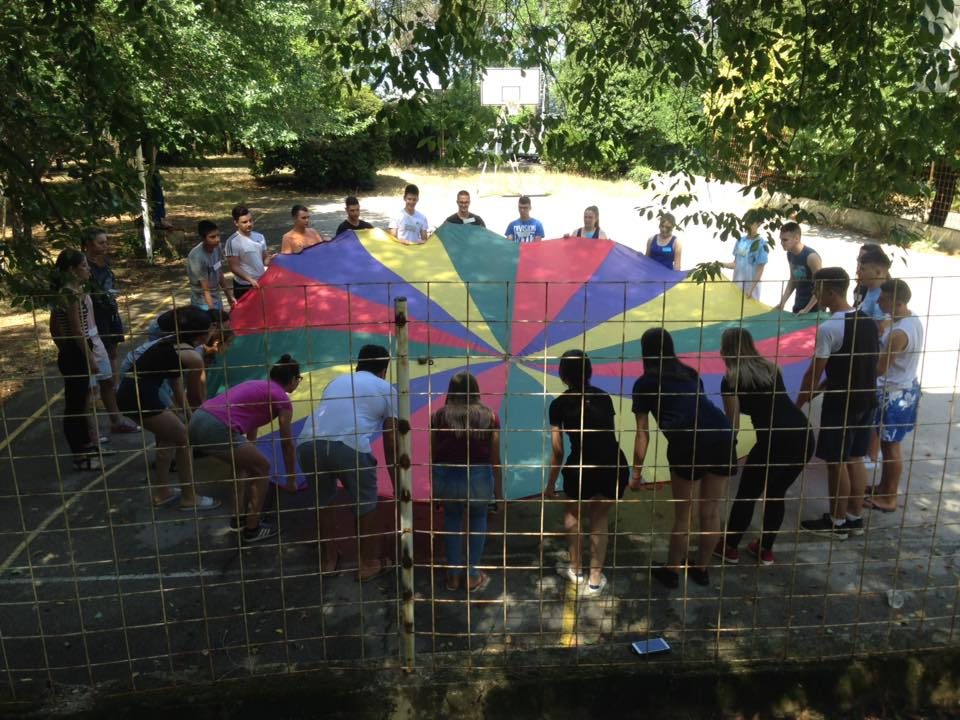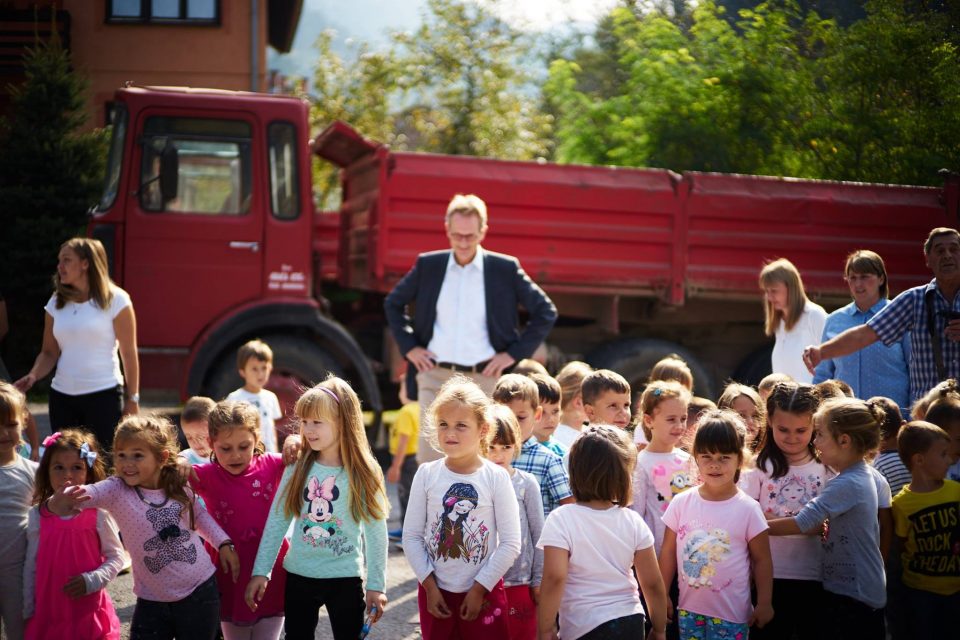
When it all began 20 years ago upon founding the association, they didn’t know what their reach would be, what challenges they would face, or how much support or controversy they would encounter along the way. It took the courage of a few like-minded individuals who wished for positive change and shared a common vision to make life better in Srebrenica.
They were driven by an idea to actively bring about the changes wanted to see in society, rather than waiting passively for them to happen.
Across years of joint effort, it turned out that remaining free and independent proved the most difficult task. At a time when the return of Srebrenica’s pre-war population took hold, there were many misunderstandings, disparaging remarks, misconceptions, and insults as well as a lot of denial related to historical events.
“The three of us who began this initiative all lived in Srebrenica, but we actually met for the first time outside of Srebrenica at a caregivers training. Soon thereafter, we were working together to register and establish the “SARA” Association for women and youth with an aim to promote and advance the ideas and living conditions of these groups. As our organization grew and developed, our strategic commitments were shaped in accordance with the community’s priorities,” says Valentina Gagić-Lazić, one of the founders of the SARA-Srebrenica Association.
Valentina emphasizes that they were always open and willing to rebuild trust and promote reconciliation in their multi-ethnic community. To some, they were spies, to others, traitors, but they always found inspiration from the people they were helping.
“I remember one encounter in the streets of Srebrenica, during which Hatidža Mehmedović expressed her gratitude for organizing the activities in which she participated: activities that allowed those days in July to proceed with dignity and free of tensions. The project to which she was referring was called “Inter-religious Dialogue as a Means of Preventing Conflict”,” says Valentina.
Youth-based Work
The SARA-Srebrenica Association is part of the Youth United in Peace (YUP) network that brings together young people from Sombor, Vukovar, Gornji Vakuf-Uskoplje, Tuzla, and Srebrenica, and which has been promoting the values of coexistence for more than 25 years now. It is an initiative where a large number of young people participate in peace camps designed around content that is focused on confronting the past and the differing narratives of the past wars in the former Yugoslavia with information that is objective and based on facts.
“In addition, weekend visits are organized during which participants stay with their peers,” Valentina adds.
The network started as the “Break from War” project initiated by the Committee on Democracy and Human Rights in Cologne in cooperation with the humanitarian organization Prijateljice from Tuzla. Valentina says that, through the network, a really high level of cooperation and friendship has been built and activities are being conducted in different partner cities on a regular basis.
“The young people hadn’t had the opportunity to hear about the things we talk about together anywhere else. Big changes in the thinking of our young people are being noticed. Friendships and unbreakable bonds are being created, and the outcomes of our meetings can best be reflected by the words of one of the youth leaders, following the end of an interethnic YUP camp in Srebrenica: “As I look at these sidewalks, I think how many people have walked on them, people who want no harm to befall anyone.”,” says Valentina.

Raising Awareness of Hate-based Crimes
One of SARA-Srebrenica’s upcoming projects will be based on raising public awareness of incidents of prejudice and hate crimes, and the organization will utilize the media to transmit project content. The Coalition of Srebrenica will also join in on the project and the OSCE Mission to BiH will provide their support. The project is comprised of a set of activities that will be implemented in two directions: one aimed at citizens, and the other at local authorities.
“We want to point out that the situation in this country and the conflicts that arise from the deep divisions and legacies of the war is all of our responsibility, especially those in public office. Conflicts to which the political situation and the lack of desire for true progress greatly contribute. We are witnessing how present hate speech is in the rhetoric of our politicians, especially during election years, and, even now, we can hear, read, and record many such situations. All of that goes unpunished, even though it leaves behind a lot of consequences for our society,” Valentina Gagić-Lazić says.
A Culture of Violence Overrides a Culture of Peace
The tensions that politicians create with their rhetoric and behavior are reflected in the actions of citizens and can be felt throughout every aspect of BiH society. Despite the fact that the war ended 23 years ago, we still do not live in peace, according to our interviewee.
“A peaceful life implies dignity in all its forms. We wanted to join the global celebration of the International Day of Peace with a walk for peace. We were aware of the fact that we needed each other now more than ever before. More than 150 of our fellow citizens, friends, and associates took part in this walk for peace. We wanted to send a clear message from Srebrenica about our commitment to peace and that we will contribute to it together. We will start first with small steps and then with mutual support and human deeds of goodness. We organized this initiative in partnership with the peace organization PAX and with the support of the Dutch Ambassador to BiH,” Valentina states.

Change through Action
The SARA-Srebrenica Association has implemented a number of different projects within its repertoire of activities, including women’s activism in community development, activities aimed at the development of rural tourism, and cooperative efforts with young people. All the projects the Association implements are in line with their strategic goals, which includes overcoming the practice of waiting for change, rather than creating it.
“In essence, people are accustomed to waiting on someone else solve their problems for them. In doing so, they ignore the local resources that we have in our communities. It’s about projects that focus on people, on building social capital, and on building communities all while relying on local potentials. Directly or indirectly, our goal is to strengthen social cohesion, which also serves as society’s immune system,” Valentina Gagić-Lazić concludes.
This publication has been selected as part of the Srđan Aleksić Youth Competition, a regional storytelling competition that challenges youth to actively engage with their own communities to discover, document, and share stories of moral courage, interethnic cooperation, and positive social change. The competition is a primary component of the Post-Conflict Research Center’s award-winning Ordinary Heroes Peacebuilding Program, which utilizes international stories of rescuer behavior and moral courage to promote interethnic understanding and peace among the citizens of the Western Balkans.
The Balkan Diskurs Youth Correspondent Program is made possible by funding from the Robert Bosch Stiftung and the National Endowment for Democracy (NED).







